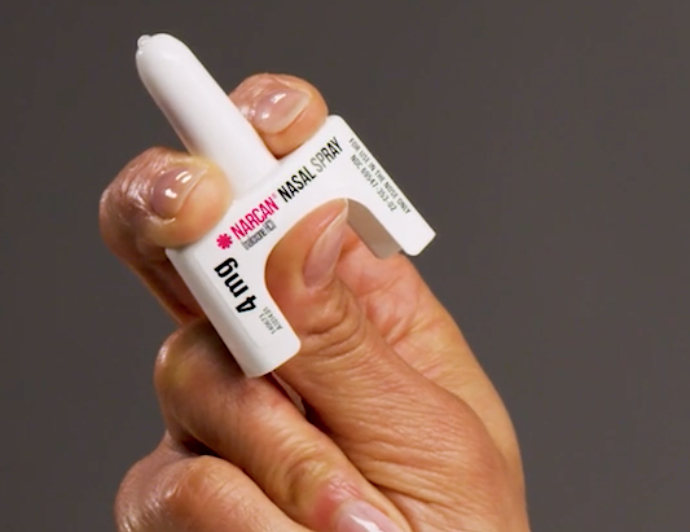Naloxone, commonly known by the brand name Narcan, is a life-saving medication used to reverse opioid overdose. Opioids are a class of pain-relieving medications that work by binding to opioid receptors in the brain, reducing pain perception. While opioids can be effective for managing severe pain, they also carry a high risk of addiction and overdose. Even when taken as prescribed, opioids can still pose a safety risk. With the opioid epidemic affecting communities at alarming rates, naloxone has become an essential tool in preventing opioid-related deaths.
What Is Naloxone?
Naloxone is an opioid receptor antagonist, meaning it blocks the effects of opioids and also rapidly reverses the potentially fatal respiratory depression (slow, ineffective breathing) caused by an opioid overdose.
Types of Naloxone:
Naloxone is available in two main formulations: auto-injector device for administration into the muscle, and also as a nasal spray. Both formulations are easy to use and suitable for all individuals to administer to people who may be experiencing a potential opioid overdose. The auto-injector device allows for quick and convenient administration, similar to an EpiPen. The nasal spray recently received over-the-counter status, increasing access for anyone to purchase it. Both formulations are available as a prescription.
How to Use Naloxone:
First, you need to recognize the signs and symptoms of an opioid overdose. If you suspect an opioid overdose, act quickly and immediately call 911 for emergency services. Common signs include:
- slow, shallow breathing
- limp body
- loss of consciousness or unresponsiveness
- small, constricted “pinpoint pupils”
- clammy, blue or cold skin
- Choking or gurgling sounds
Next, administer naloxone if it is available. Before an emergency occurs, take the time to read the instructions and become familiar with the naloxone formulation you have. Each brand may have slight variations, so it’s essential to know the specific instructions for the one you have.
How to use naloxone auto-injector device:
- Prepare the auto-injector: Remove the device from its packaging, being careful not to touch the needle at the tip. Ensure that the device is not expired, and check for any visible damage or defects.
- Position the person: Lay the person on their back, and ensure that their airway is clear. If necessary, carefully roll them onto their side to help with breathing.
- Locate the injection site: The most common site for administering naloxone is in the muscle of the thigh. Look for a large, flat area on the outer part of the thigh, between the hip and the knee. Avoid injecting into areas with clothing or where bones are close to the skin.
- Administer the injection: Firmly press the auto-injector against the person’s thigh, keeping your hand away from the end with the needle. Follow the device’s instructions, which may include pressing a button or releasing a safety mechanism to initiate the injection. Apply steady pressure until you hear or feel a “click” to ensure that the full dose has been delivered.
- You may need to administer a second dose of naloxone if the person was exposed to high doses of opioids.
How to use naloxone nasal spray:
- Prepare the nasal spray: Remove the nasal spray device from its packaging, being careful not to touch the nozzle or inside of the device. Check the expiration date and ensure that the device is undamaged.
- Position the person: Lay the person on their back, and ensure their airway is clear. If needed, carefully roll them onto their side to facilitate breathing.
- Administer the nasal spray: Gently insert the tip of the nasal spray device into one nostril, aiming it toward the side of the nose rather than straight up. The other nostril should remain closed or gently pressed shut with a finger.
- You may need to administer a second dose of naloxone into the other nostril if the person was exposed to high doses of opioids.
There is also a New Higher Dose Naloxone Approved by the FDA
For more information on how to use naloxone, visit the CDC website here: https://www.cdc.gov/stopoverdose/naloxone/index.html and/or download the OpiRescue app here: https://www.rxapp.link/
In conclusion, naloxone is a vital tool in combating opioid overdoses and preventing deaths. Knowing how to recognize the signs of an overdose and administer naloxone properly can save lives. If you or someone you know is at risk of opioid overdose, it is essential to have naloxone readily available. Remember, naloxone is not a substitute for emergency medical care, so always call 911 for help immediately if you suspect someone is experiencing an overdose. With the use of naloxone, anyone in the community can make a positive difference in reducing the devastating impact of deaths due to opioid overdoses.
Resources:
1) American Society of Anesthesiologists. What Are Opioids?; 2023. https://www.asahq.org/madeforthismoment/pain-management/opioid-treatment/what-are-opioids/
2) CDC. Save a Life from Prescription Opioid Overdose; July 2020. https://www.cdc.gov/rxawareness/prevent/index.html
3) Naloxone Hydrochloride Injection [package insert]. Richmond, VA: Kaleo, Inc; 2022.
4) Naran (naloxone hydrochloride) nasal spray [package insert]. Randor, Pa: Adapt Pharma, Inc; 2015.












